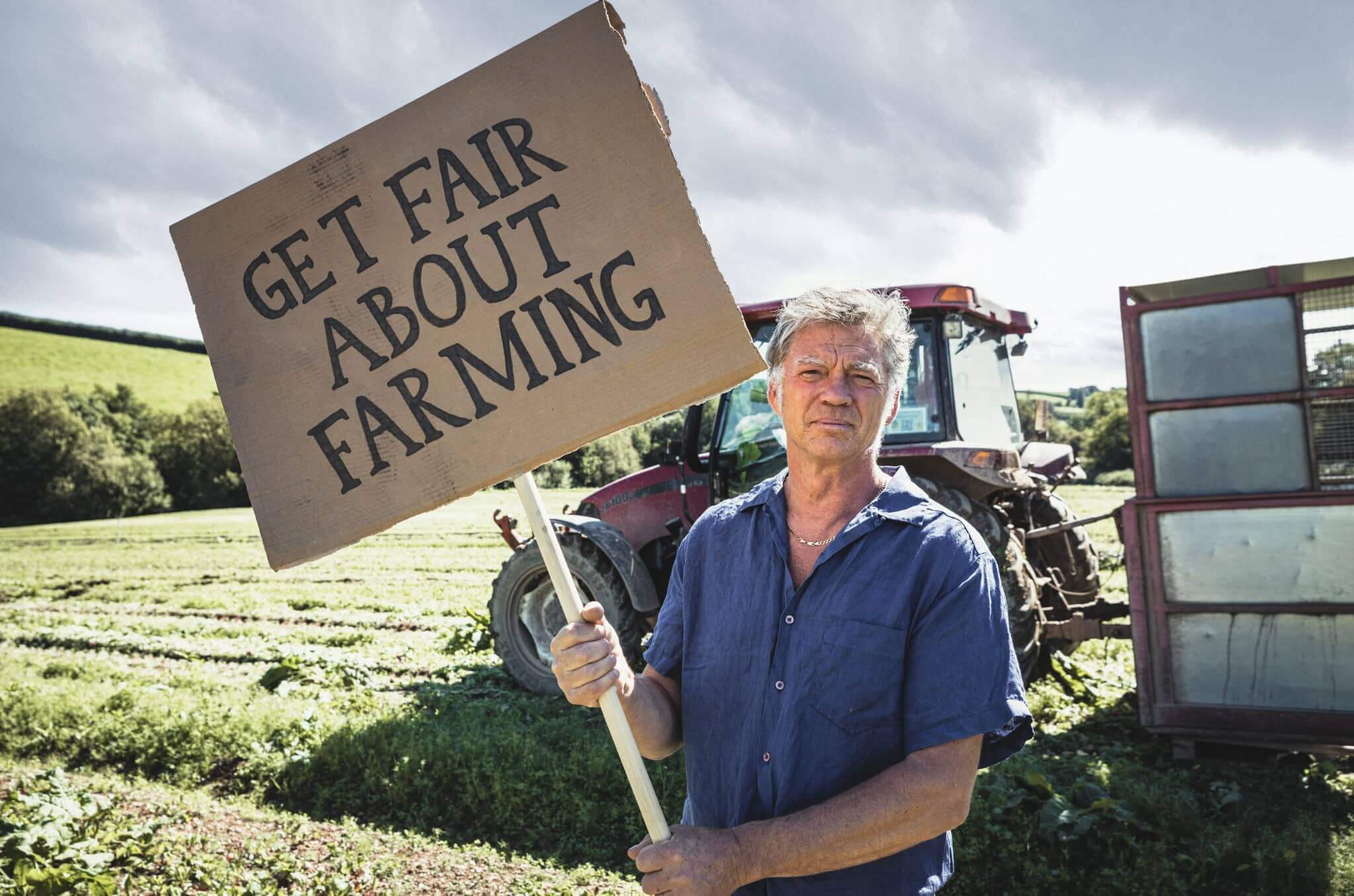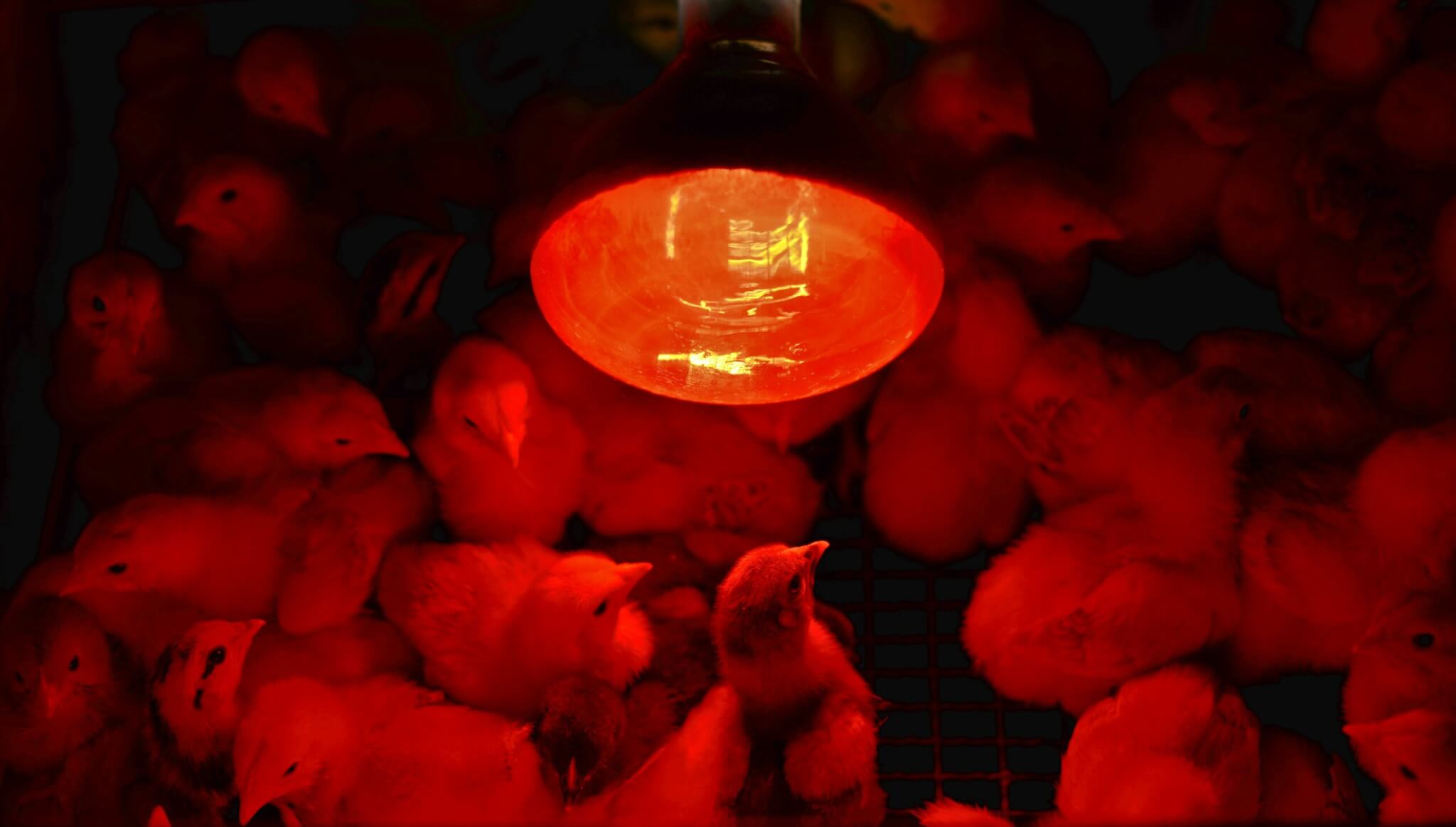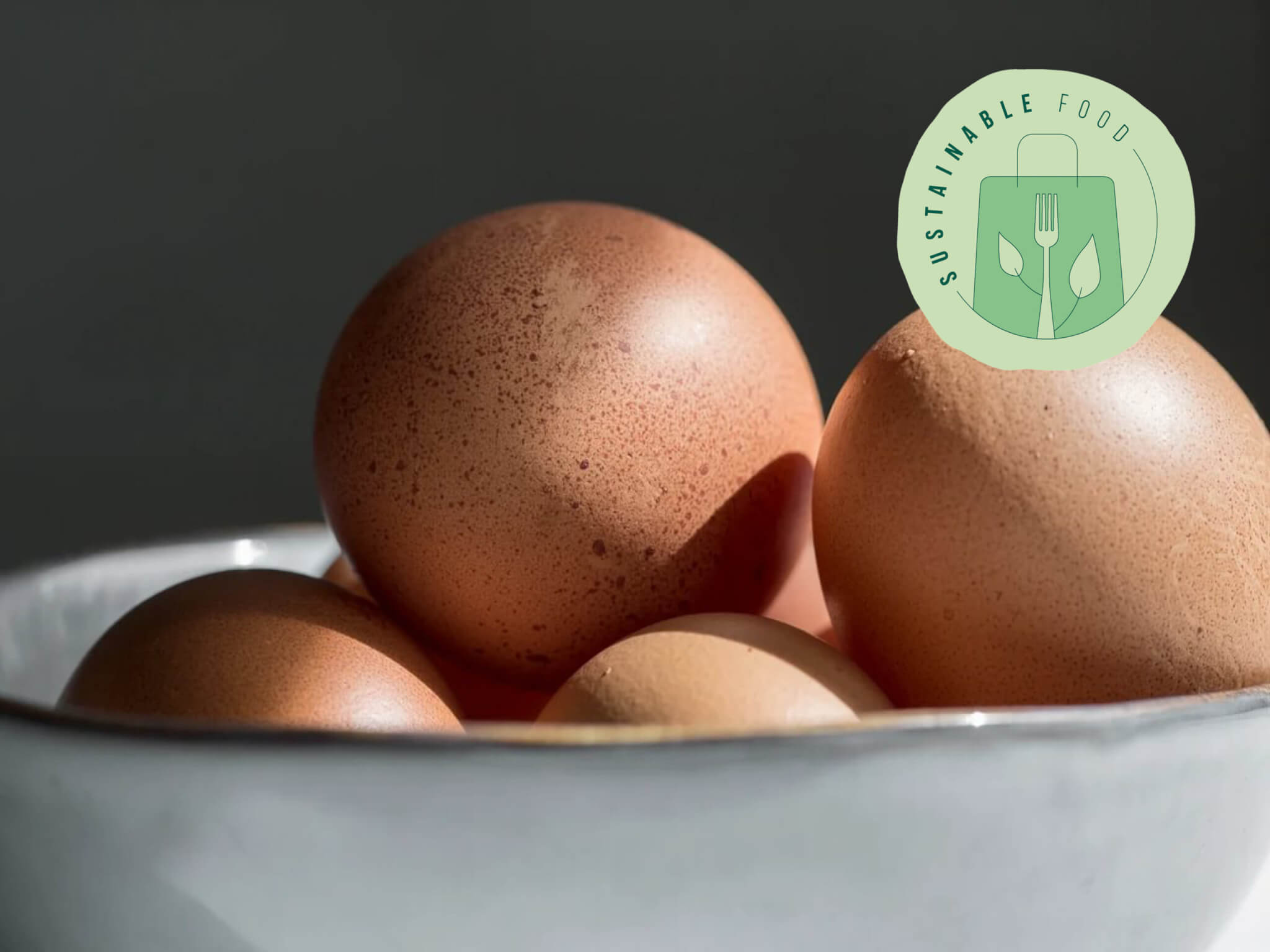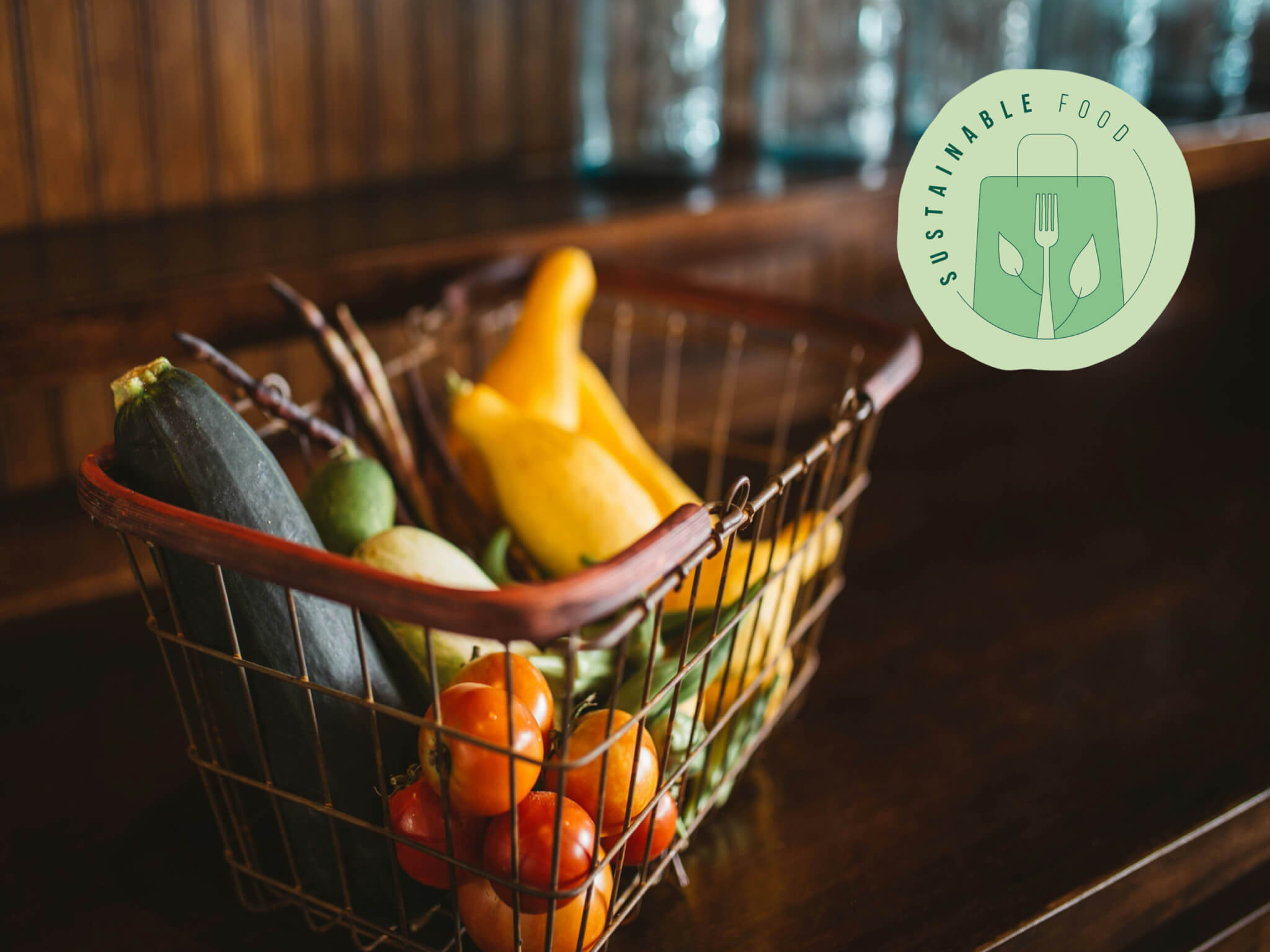Almost 100 chefs, farmers and celebrities have signed an open letter asking supermarkets to treat farmers more fairly after new research has found half of British fruit and veg growers say they may go out of business in the next 12 months.
The survey, which was done by research firm Opinion Matters on behalf of organic veg box company Riverford, found 75 per cent of those asked said treatment by supermarket buyers was one of their top concerns.
A third (29 per cent) said they have received a cancelled order with no explanation, leading to loss of income and food waste, while a similar amount said supermarkets have failed to pay them within 30 days.
Two thirds of fruit and veg growers asked said that making a living through farming has never been harder and 61 per cent fear that they won’t have a farm to pass on to future generations.
The news comes after a series of reports this year from farmers repeatedly warning that prices they receive from supermarkets don’t match how much it costs to produce.
TV chefs including Rick Stein, Hugh Fearnley-Whittingstall and Melissa Hemsley are among those who have signed the open letter, as well as conservationists and TV personalities Ray Mears and Chris Packham, Dragon’s Den investor Deborah Meaden, musician and farmer Marcus Mumford and a wide range of farming representatives, all calling for supermarkets to ‘get fair about farming’.
In the letter, which has been sent to the chief executives of Tesco, Sainsbury’s, Asda, Morrisons, Aldi and Lidl, founder of Riverford, Guy Singh-Watson, said: “British agriculture is on its knees, and that’s why most small family farms think that they’re not going to be in business the next generation. Farmers need to be treated fairly; they need some commitment from supermarkets.
“Sustainable trading relationships are based on co-operation, good communication and trust as much as competition. A brutal, short-term focus on annual price negotiations is supporting supermarket margins while destroying British farming along with the landscape, wildlife, and rural communities it once supported.”
One potato farmer, who didn’t want to be named, said: “I’ve not grown for the major supermarkets for five years, and I would never go back. It cost me £25,000 to grow the crop – they just said ‘we don’t want them now’ – that was it, 60 metric tonnes of potatoes wasted.
They added: “There is no way I would grow for the supermarkets again. They’ll squash you to keep the prices down. You just don’t know how much to expect in terms of income, and at times you end up taking huge financial hits and wasting so much food. We need a fairer, shorter, and more transparent food chain.”
The letter is part of a new #GetFairAboutFarming campaign, launched by Riverford, calling for supermarkets to adopt the principles of its own Fair to Farmers charter. Devised by Singh-Watson to cement fair trading into the Riverford business, these principles include:
- Pay what you agreed to pay
- Buy what you committed to buy
- Agree on fair specifications
- Commit for the long term
- Pay on time
In the new research, two thirds of farmers surveyed said that having a commitment for the long-term would have a very significant positive impact on their business.
As well as needing better treatment from farmers, over half of those asked believe farming sits on the bottom of the government’s list of priorities, while almost 70 per cent say there should be tougher regulations to protect farmers from the imbalance of power held by supermarkets.
People who would like to show their support for farmers, can sign a petition asking the government to step in and protect Britain’s broken food system.













Supermarkets have way too much power over their suppliers. It is both interesting and terrifying to note that while many have been aware of this for some time, we are all witnessing, and most are participating in the same thing happening in other spheres right now. That huge multi-national online retailer, an economic superpower in its own right, richer and more powerful than many countries (it even has its own space program!). Maybe you have the well-known apps on your phone enabling you to book a minicab or a weekend break in a b&b. All these are becoming ubiquitous and, just as the supermarkets, they all have way too much power over their suppliers.
Ever the pessimist.
Great petition and long overdue! If the public are made aware of these practices, would they change their behaviour? And why are those rapacious supermarket practices not common knowledge?
I have read on many occasions that if a farmer enters in a contract with a supermarket to provide a crop and if that year that produce fails due to the weather, for instance, the farmer is bound to find and buy from another farmer that crop, at an inflated price (due to its scarcity and possibly because it has to be transported from abroad, as the weather made most crops fail locally).
He then is obliged to sell it to the supermarket at the price agreed originally. Is that true?
Most people would agree that we need to change the way we source our food. The problem is that most people don’t understand how we do it now. Intensive farming, inorganic fertilisers, importing from the other side of the globe, control of the food supply by a small number of extremely powerful international corporations – I didn’t know about this 30 years ago but I have been finding out little by little for all those years and changing how I source food for my family accordingly. In all that time the situation has worsened.
You would expect this comment from a teacher but I believe that we have to invest in educating people about these issues. Most people want to do the right thing if only they were clear what the right thing is. The rush to vegan meat substitutes is a good example: many people did this because they had been told that eating meat is bad for the planet. The voices of those explaining that it is intensively farmed meat that is the issue, pointing out that vegan meat substitutes are an ultra-processed food and therefore of very dubious value, were drowned out by the clamour of the advertisers who saw a massive sales opportunity and by some means or other convinced bloggers and ‘influencers’ too. When I ask people to imagine what you have to do to a soya bean to make it look and taste vaguely like bacon, the chemicals and additives you have to use, they can’t. They don’t know. Nobody has ever explained it to them.
We need to find as many ways as possible of spreading the truth. We have to go out there and convince people that what they are putting in their mouths is making them ill, that what they are feeding their children is probably contributing to obesity and diabetes later in their life, that the cheap meat they eat twice a day should be replaced by good meat less often, that they are being conned. We need them to know that the big supermarkets have a stranglehold on farmers who want to do right. How many of the people who live on fried chicken, burgers and pizza do you think read Wicked Leeks?
We have to find ways of bringing the message to more people. It won’t be easy, but surely the difficult things are the ones most worth doing. Guy’s petition is a step in the right direction, especially if it reaches the target for a debate in Parliament which just might be covered for 20 seconds in a national news bulletin.
I’m stopping now, not because I don’t have anything more to say but because I have too much.
I LOVE this letter – it offers ideas as to how we can counteract the current situation.
I guess we are the ‘ordinary’ people, the people on street level, many of us who by now are older and wiser and have been through much living so that we have learned a lesson or two along the way. The way for us to fight back against the corporations (and the governments) who seem hell-bent on making money as being the main purpose of life, is to ORGANISE!!! By educating people as to how and why to make changes, we can MAKE CHANGES.
Recently the information about UPF (Ultra Processed Food) has become far more wide-known and accepted. Maybe we can do local posters and groups who aim to share the education. Yes, it will be a long haul. (Remember the conflict Jamie Oliver had when he started educating folk about battery-farmed chickens?) However, there really is a large number of people who are already aware so – let’s spread the word!!
We are being conned!! We can stop that!! We do have our own minds/intelligence!
Avoid supermarket shopping. Support farmers. Stay healthy.
As a human race we can work with nature and become conscious, considerate stewards of planet earth or we can be the puppets of big organisations and carry on with the old way – trashing the planet as well as each other. It’s our choice!!
Great petition – I have signed up and contacted my MP and awaiting response which he always does in the timeframe he sets himself. Usually I’m telling him I don’t agree with the way he voted but this time hope to influence him if the issue reaches debate. I agree with ‘Doingmybest’ who is spot on that it is the consumer whom needs educating – in my humble opinion the consumer is the BIG problem and I have thought this for many years – people pay lip service to what is best for the survival of earth & and its inhabitants of all kinds but still want a bargain when they spend their money in the supermarket. The Supermarkets get their power from the consumer. The rush towards veganism which I abhor & the holier than thou attitude vegans have towards meat eaters – their own food is often unhealthy and also the way it is produced is bad for the planet. Long live Riverford and its way of doing things as an example to other farmers – very best wishes.
This is a much needed campaign. The problem that @annie-anti-negativism highlights is true, but it should be said that in an age of rising food prices, some households are forced into buying cheap foods. The massive challenge is to get decent food on the plates of everyone and I’m not sure how that’s going to be done. Education will only work on those who have the time and money to make the choice.
As a vegan I feel @annie-anti-negativism views upsetting. I can’t speak for all vegans of course, but this is certainly not a picture of me and the friends I have that are vegan. I support Riverford and have great respect for Guy Singh-Watson, and grow as much as I can on my small garden plot. We have some great local shops and producers in my part of Devon which get my support. Buying veg from supermarkets is an absolute last option and I can definitely say I have a healthy diet. All of this happens because I am in the very fortunate position of having the time and the income to make this possible. An option not open to everyone.
Holier than thou I am not!!